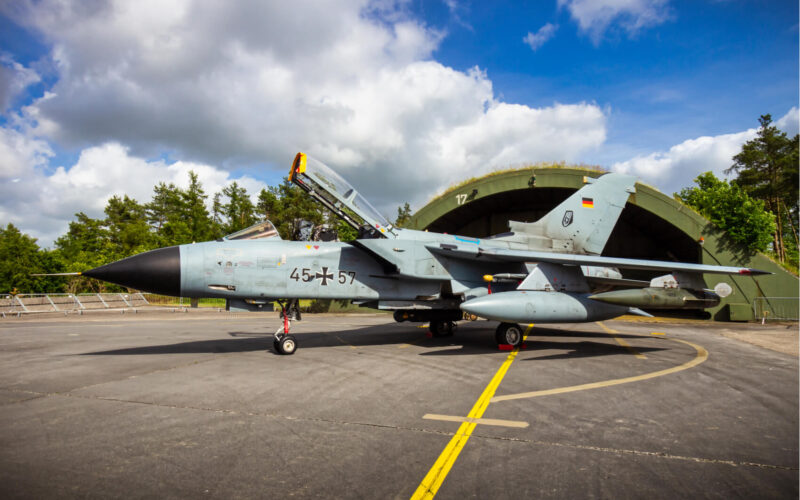Germany has officially confirmed to the United States that it would acquire 45 F / A-18 Super Hornets from Boeing to replace part of the Panavia Tornado fleet.
Since 2017, the German government has been actively looking to replace its aging fleet of Panavia Tornado aircraft. The strike aircraft, that entered service in the 1970s, is now even too old to participate in NATO missions.
As part of NATO nuclear sharing, participating countries have to operate at least one type of aircraft capable of carrying one of the estimated 190 U.S. B61 nuclear bombs stockpiled on their soil. This agreement negotiated secretly during the Cold War was meant for a quicker response to any nuclear threat coming from Russia. Back in October 2018, it was presented as one of the criteria that oriented the choice of the Belgian authorities to replace the F-16 with the Lockheed Martin F-35 instead of the Eurofighter Typhoon.
The Panavia Tornado was, until now, the designated aircraft of the Luftwaffe, the German air force, for NATO nuclear capabilities. The previous German defense minister Ursula von der Leyen was openly favoring a European choice with the Typhoon. In June 2018, an official request was sent to the U.S. authorities to determine the costs and timeframe required for the aircraft to be able to carry out nuclear missions.
But the request seemingly fell through. Some argue that the certification of the Typhoon, which would require from three to five years longer than the F/A-18 Super Hornet, was too long as the German Tornados are set to retire by 2025, 2030 at the latest. Others claim the United States simply refused to comply.
Whatever the truth is, Germany is now moving forward. In addition to 90 Airbus Eurofighter Typhoons, it will order 30 F/A-18 Super Hornets for their nuclear capacity, and 15 of the variant for electronic warfare, the EA-18G Growler. Defense Minister Annegret Kramp-Karrenbauer officially informed the American government of the decision on April 16, 2020, according to Der Spiegel.
But the order is yet to be approved by the Bundestag. And already critics are voiced: the chairman of the Bundestag’s defense committee, the Social Democrat Wolfgang Hellmich, criticized the minister’s “lack of transparency” and considered that for now, no decision could be taken.

